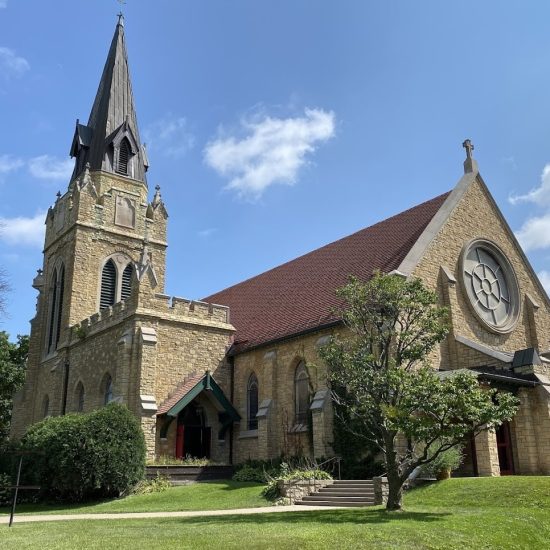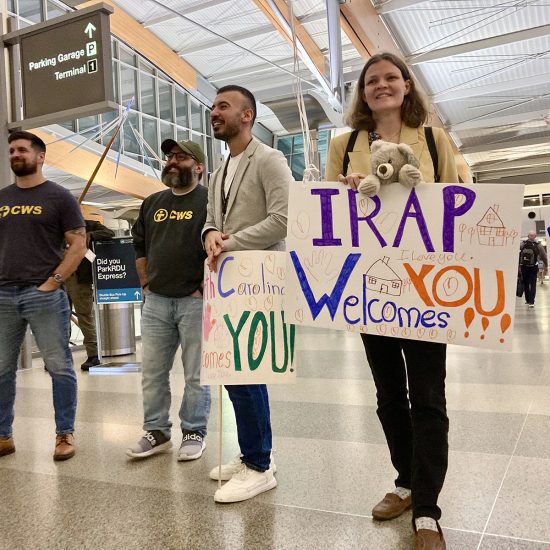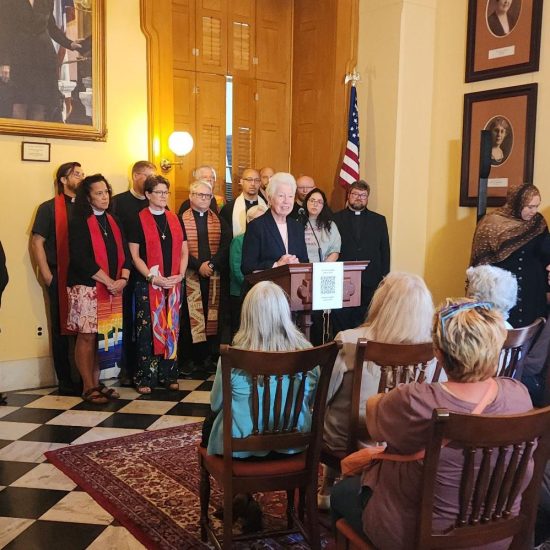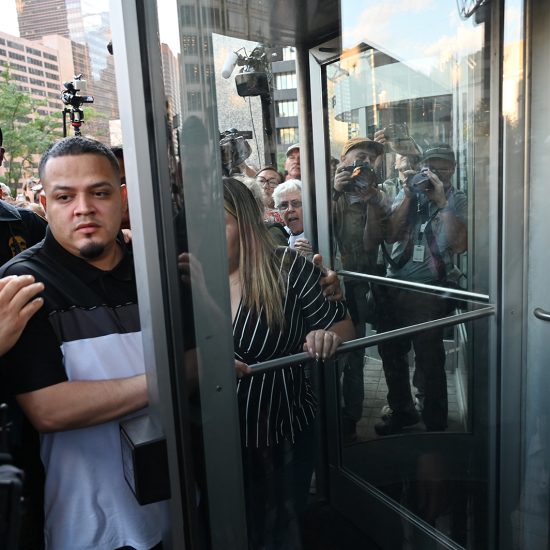After President Donald Trump signed an executive order barring refugees and stopping visa-holders from seven nations, many Baptist leaders quickly criticized the action. Trump’s Jan. 27 order halted the admission of all refugees for 120 days, barred all Syrian refugees indefinitely and blocked all individuals from seven predominately Muslim nations from entering for 90 days. Although Trump claimed national security concerns to justify the order, refugees have been implicated in zero terrorist attacks in the U.S. since the Refugee Act of 1980 and the visa ban does not include any of the nations of the 9/11 hijackers.
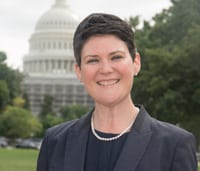 Amanda TylerAmanda Tyler, the new executive director of the Baptist Joint Committee for Religious Liberty, condemned the executive order as “a back-door bar on Muslim refugees” since the new policy on refugee admittance includes an exception only for those whose religion is a minority religion in their country. An 80-year-old organization representing 15 Baptist bodies, the BJC’s membership includes the American Baptist Churches USA, Churchnet, Cooperative Baptist Fellowship, National Baptist Convention USA and National Baptist Convention of America.
Amanda TylerAmanda Tyler, the new executive director of the Baptist Joint Committee for Religious Liberty, condemned the executive order as “a back-door bar on Muslim refugees” since the new policy on refugee admittance includes an exception only for those whose religion is a minority religion in their country. An 80-year-old organization representing 15 Baptist bodies, the BJC’s membership includes the American Baptist Churches USA, Churchnet, Cooperative Baptist Fellowship, National Baptist Convention USA and National Baptist Convention of America.
“Any attempt to ban Muslim refugees based on their religion betrays our values and sends the un-American message that there are second-class faiths,” Tyler added. “Our country, founded by immigrants who established religious freedom as a bedrock principle, is better than this. A threat to anyone’s religious liberty is a threat to everyone’s religious liberty, and we as Baptists stand with those facing religious persecution around the world, regardless of their faith.”
Suzii Paynter, executive coordinator of the Cooperative Baptist Fellowship, reaffirmed CBF’s commitment to serving refugees. CBF’s statement also included comments of concern from several field personnel ministering to refugees in the U.S. and elsewhere. Paynter said “the love of Christ compels us to stand in solidarity with our global neighbors — the oppressed, the unheard and those on the margins.”
“As a Fellowship, our churches and field personnel stand with refugees and immigrants here in the United States and around the world, spreading hope and offering comfort in a world that all too often offers hate and fear over peace and welcome,” she added.
Several Baptists were among the more than 2,000 religious leaders who signed a letter to Trump and Congress supporting refugee resettlement as “an urgent moral responsibility.” The letter explains “the United States has the most rigorous refugee screening process in the world.”
“Proposals that would have the U.S. State Department disqualify refugees from protection based on their nationality or religion fly in the face of the very principles this nation was built upon, contradict the legacy of leadership our country has historically demonstrated, and dishonor our shared humanity,” the letter notes.
“As people of faith, our values call us to welcome the stranger, love our neighbor and stand with the vulnerable, regardless of their religion,” the letter concludes. “We pray that in your discernment, compassion for the plight of refugees will touch your hearts. We urge you to be bold in choosing moral, just policies that provide refuge for vulnerable individuals seeking protection.”
Baptists who signed the letter include: Michael Castle, president of the Alliance of Baptists; Susan Gillies, interim general secretary of the American Baptist Churches USA; Blake Hart, missions coordinator for the Cooperative Baptist Fellowship of South Carolina; Mark Medley, associate professor of theology at the Baptist Seminary of Kentucky; Tyrone Pitts, general secretary emeritus of the Progressive National Baptist Convention USA; LeDayne McLeese Polaski, executive director of the Baptist Peace Fellowship of North America; and Aidsand Wright-Riggins, executive director emeritus of the American Baptist Home Mission Societies. A couple dozen Baptist pastors also signed the letter.
While most Christian leaders publicly addressing the executive order banning refugees have criticized the president’s move, a few prominent Baptists offered their support. Evangelist Franklin Graham, who read scripture at Trump’s inaugural and advised Trump during the campaign, defended temporarily banning refugees after asked about a draft proposal of the order Trump later signed. Graham dismissed the topic as “not a Bible issue.”
Robert Jeffress, pastor of First Baptist Church in Dallas, Texas, and an early supporter of Trump during the primaries last year, insisted that Trump’s order followed “the biblical mandate for government to protect its citizens.”
“While Scripture commands individual Christians and churches to show mercy to those in need, the Bible never calls on government to act as a Good Samaritan,” he added.
Ronnie Floyd, a former president of the Southern Baptist Convention and senior pastor of Cross Church in Springdale, Ark., similarly defended Trump’s action by claiming the government should not be expected to follow the commands given to the church. Floyd, who joined Graham and Jeffress on Trump’s Evangelical Executive Advisory Board during the campaign, insisted the “government’s first job is to protect people and the church’s first job is to serve people.”
Christian organizations involved in refugee resettlement have loudly criticized the executive order, including the National Association of Evangelicals, U.S. Conference of Catholic Bishops, World Relief and World Vision. Among the first impacted by Trump’s action were two Syrian Christian families denied entrance to the U.S. on Saturday despite having obtained legal visas.


